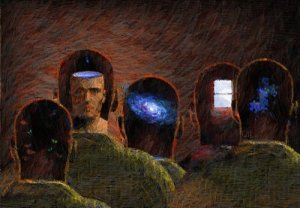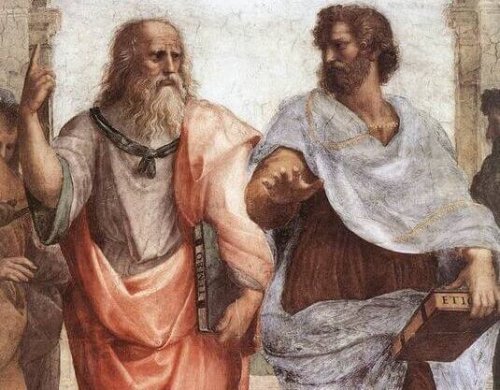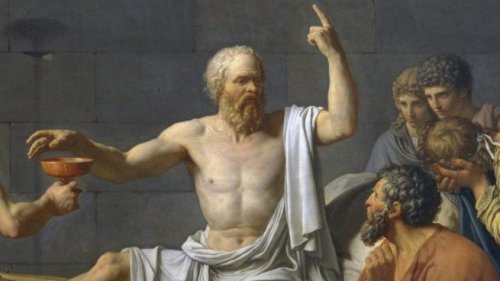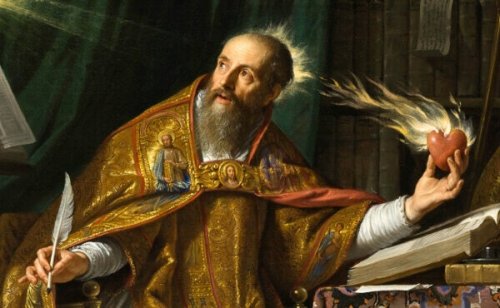The Philosophy of Doubt: A Brief Historical Review

Not much has been written about the philosophy of doubt. The history of thought and the history of doubt go hand in hand. From the time that people began to systematically reason about themselves and their reality, the first fundamental doubts emerged.
The great epic texts indicate that, for many centuries, humans dealt with dilemmas, questions, risks, and insecurities with a purely heroic approach. We find the best examples of that in works such as The Iliad and The Odyssey.
The philosophy of doubt
In the ancient Greek world, rhetoric became the art of reasoning about one’s existence. It was also used as an instrument of persuasion. In Gorgias’s On Non-Existence or On Nature (Diels & Kranz, 1923) doubts are critical to free thought.
In the words of Protagoras, “Of all things the measure is man, of the things that are, that [or “how”] they are, and of things that aren’t, that [or “how”] they aren’t”. This philosophical position focuses on the development of an individual’s ability to deal with reality, others, and themselves.
Socrates also referenced the philosophy of doubt. He did it through one of Plato’s great works. Consequently, he became the figure of the virtuous thinker. From that historical moment on, the world of ideas and thoughts became man’s Olympus.
Effective action or behavior is no longer the purpose of thought. Philosophical thought starts to feed on itself. The search for truth becomes the ultimate goal, more important than philosophical inquiry. It uses about as the primary tool for this search, but the goal is to eliminate doubt and reach supreme knowledge.

Plato and doubt
If we analyze Socratic and maieutic doubt, we see something clearly. If you proceed with guided questions, it’s possible to shed light on the inner truth of man. Consequently, once you’ve reached the truth, you eliminate doubt (which gives way to more doubts).
Nevertheless, it’s with the work of Plato (disciple of Socrates) that the world of ideas overtakes the practical dimension. All of Plato’s work is oriented towards showing the supreme value of truth. The world of absolute ideas determines everything.
Doubt no longer finds space as a stimulus that frees us from the cages of knowledge controlled by ideas that are indisputable because they’re absolute. In Plato’s The Republic, he argues that there’s a need for a re-education of the intellect. He proposes that it would take place in structures that foreshadow, to a certain extent, modern concentration camps, built far from the city.
Plato believed that knowledge emanated from God (a very unique deity) like a light. Those who were the furthest from the source were the most ignorant and primitive. He who moved towards the light through knowledge and faith in the world of absolute ideas could rise above bestiality and evolve into a philosopher.

Doubt according to Saint Augustine
You can also find a discussion of the philosophy of doubt in works by Saint Augustine. For Saint Augustine, doubt is a required step in the journey towards truth. Socrates believed that doubt was an expression of the truth. You can’t doubt unless there’s a truth doubt originates from.
As a result, you can’t know the truth in and of itself. You can only know the truth in the form of a refutation of error. Evidence of truth lies in the ability to doubt the false illusions that darken the path towards absolute truth.
During the Middle Ages, scholastic teachers brought back Saint Augustine’s lesson and the ancient Greek rhetoric. They did so with apparently unsolvable doubts and dilemmas. They measured the exactitude of reasoning like the truth of God always won out over the doubts of man.
It was exactly during this time that the university was born – the cradle of academic thought. This was no coincidence. The scholastic teachers were the ones who founded the first universities. Among the most important representatives are Saint Thomas Aquinas and Father Abelard.

Doubt in the 19th century
The philosophy of doubt can’t be separated from science. Starting in the second half of the 19th century, another important movement emerged that promised victory over human dilemmas and doubts: science.
Positivist faith in scientific knowledge quickly became a kind of faith. Science seemed like a path towards liberation from evil and an improvement in the human condition.
It wasn’t until the beginning of the 20th century that extreme faith in science and its ability to lead us to objective knowledge fell apart. It toppled due to methodological reflections and scientifically advanced discoveries.
All cited sources were thoroughly reviewed by our team to ensure their quality, reliability, currency, and validity. The bibliography of this article was considered reliable and of academic or scientific accuracy.
F. Martínez Marzoa (2005). Historia de la filosofía. Ediciones Istmo, Madrid.
This text is provided for informational purposes only and does not replace consultation with a professional. If in doubt, consult your specialist.








